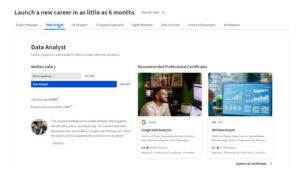By Rodaportal
INTRODUCTION
In the unfolding narrative of modern education, a profound question echoes: Is the traditional degree losing its relevance in the face of a rapidly evolving job market? This inquiry delves deep into the realms of academia and industry, drawing insights from luminaries like Steve Jobs, Bill Gates, and Elon Musk, whose unconventional paths challenge the conventional wisdom surrounding the necessity of a university or college degree. Are we on the cusp of a new era where the traditional degree fades into obsolescence?
The Winds of Change: Adaptation in Employability Trends
Once held in high esteem, academic credentials now face scepticism in today’s job market. The pivotal question arises: Is investing time and resources into a degree still a prudent choice in our swiftly changing world? The foundation beneath traditional degrees appears unstable as industries pivot towards valuing practical skills and experiential learning, recognizing them as indispensable assets in a landscape that demands adaptability and immediate impact.

This transition is palpable across various sectors. In technology, coding boot camps and online certifications have gained prominence as companies prioritize candidates demonstrating practical coding proficiency and real-world project experience over those with purely theoretical knowledge from a degree.
Similarly, in creative fields like digital marketing, professionals proficient in practical aspects such as social media management and data analytics are highly sought after, often acquired through workshops or hands-on experiences. Likewise, in healthcare, while medical degrees remain crucial, there’s a growing emphasis on continuous learning and upskilling in specialized areas, emphasizing the fusion of theoretical knowledge and practical expertise.

In essence, employability trends herald a paradigm shift, redefining the intrinsic value of academic qualifications. The contemporary job scene acknowledges the paramount importance of practical skills and hands-on experience, prompting a reassessment of the relevance of traditional degrees unless they align closely with the evolving needs of industries.
Is a Degree a Prerequisite for Success?
The age-old question of whether a college or university degree is a prerequisite for success reverberates in today’s educational landscape. Escalating costs juxtaposed with evolving job market demands compel a profound reassessment of traditional higher education. With average costs surpassing $35,000 in the U.S., the return on investment comes under scrutiny, challenging the notion that a degree is indispensable for success.
Numerous trailblazers across industries have forged unconventional paths to success. In the tech realm, luminaries like Bill Gates, Steve Wozniak, Mark Zuckerberg, and the late Steve Jobs achieved monumental success without formal degrees, reshaping the tech landscape and underscoring the importance of practical skills, innovation, and entrepreneurial acumen.

In creative domains, icons like Walt Disney and Coco Chanel stand as a testament to the power of vision, creativity, and hands-on experience, carving out empires without relying on traditional higher education. Similarly, in business and entrepreneurship, figures like Richard Branson and Oprah Winfrey navigated their paths to success without formal degrees, highlighting the significance of determination, leadership, and real-world experience.
Amidst this flux, alternative education avenues such as community colleges, apprenticeships, and online certifications have garnered attention. These offer more flexible and targeted approaches to skill acquisition, aligning closely with the dynamic demands of the contemporary job market. In essence, the pivotal question prompts a reevaluation of the evolving dynamics of education and employability, fostering a more inclusive and diversified approach to success.

The Dissatisfaction Epidemic: Examining University Woes
Universities find themselves grappling with an epidemic of dissatisfaction. Employers increasingly prioritize tangible skills, grit, and the right attitude over mere credentials. The soaring costs of degrees, particularly in North America, have become burdens too heavy to ignore. Why incur massive debt for a degree when vocational skills can pave a more direct path to financial success? The relevance issue exacerbates the situation – technology advances rapidly, leaving university curriculums struggling to keep pace. In an era of accessible online learning, traditional campuses confront an existential crisis.

The Transformation of Universities: From Knowledge Bastions to Profit Enterprises
Once revered as bastions of knowledge, universities are metamorphosing into profit-driven enterprises. The financial strain on students, coupled with the sluggish adaptation of academic institutions to industry transformations, underscores the growing dissatisfaction with traditional education. The surge of online skills courses and competency training programs offers a more cost-effective and accessible alternative, challenging the monopoly universities once held on higher education.

Skills-Based Education: Ascending the Pedestal
In response to the evolving demands of the job market, skills-based education and training courses have risen to prominence. Tailored to impart practical, industry-specific skills, these courses offer a swifter and more targeted route to expertise acquisition. Online platforms and vocational training institutes have democratized access to these courses, ushering in an era where education transcends ivory towers, reaching a broader, more diverse audience.

Navigating the Spectrum: Striking the Balance
The ongoing debate transcends binary choices, evolving into a spectrum where a delicate equilibrium between theoretical knowledge and practical skills is imperative. The ability to integrate academic qualifications with skills-based training emerges as a coveted trait sought by employers. The landscape evolves, challenging the entrenched belief that a singular degree suffices for a lifelong career. Micro-credentials and focused programs gain traction, equipping professionals with the tools to adapt to evolving demands.
Hiring Trends of Large Companies: Decrypting the Puzzle
Large corporations, the behemoths of industry, find themselves at the forefront of this discourse, grappling with multifaceted considerations in their hiring decisions. While skills and qualifications remain pivotal, the landscape is nuanced. Employers weigh diverse factors, including experience, cultural fit, adaptability, networking prowess, leadership potential, and technological adeptness. In the past, possessing a degree was a prerequisite for most roles, but now companies seek candidates with a versatile skill set aligned with their specific needs.

Conclusion: Crafting a Tapestry of Adaptability
The debate surrounding the value of degrees in education and employability persists, fueling an ongoing discourse. In a dynamically evolving workforce, a holistic approach melding theoretical knowledge with practical skills is indispensable. Striking a harmonious balance between academic credentials and skills-based training is paramount. In today’s ever-evolving global economy, embracing a dynamic and inclusive approach to education serves as the cornerstone for individuals and societies to flourish. Is the modern degree fading into obsolescence, or are we witnessing a metamorphosis into a more flexible and adaptable form? Time holds the answer.

If you found this discourse enlightening, delve deeper into the conversation by watching the YouTube video “Is the Modern Degree Becoming Obsolete?“: https://youtu.be/vue9XAN-2fg. Remember, engagement fuels the dialogue about the future of education and employability. Stay informed, stay engaged.
